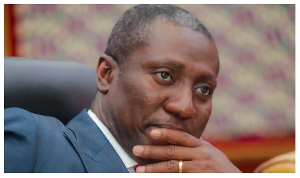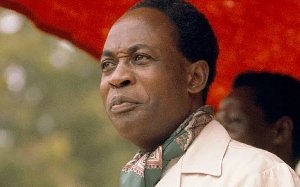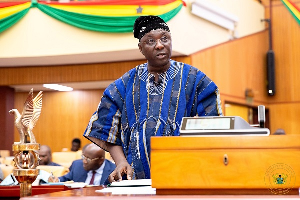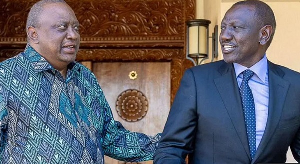Conversations about the achievements and shortfalls of Ghana’s first president, Dr Kwame Nkrumah, are rife on social media following comments by Energy Minister, Dr. Matthew Opoku Prempeh, the running mate of the New Patriotic Party.
During his unveiling in Kumasi on July 9, the Manhyia South MP asserted that President Akufo-Addo’s efforts in developing the country surpassed that of Mr Nkrumah.
“Since independence, from 1957 till today, we’ve not had any president that has helped Ghana like Nana Akufo-Addo. I say from 1957 till today, you can bring your Kwame Nkrumah. No president has protected Ghana and moved the country forward like Nana Akufo-Addo,” he said.
This comment has been greeted with mixed reactions. Meanwhile, sympathisers of President Nkrumah have criticised the lawmaker for the comments, but the NPP faithful have largely defended him, arguing that he was only expressing his opinion.
On social media, several posts have highlighted Kwame Nkrumah’s accomplishments during his presidency. One such post that gained popularity is the establishment of Kwame Nkrumah University of Science and Technology (KNUST) in Kumasi.
Another claim identified by DUBAWA Ghana in the assertion alleges that Mr Nkrumah led Ghana to its first IMF bailout programme.
Mr Nkrumah became Ghana’s prime minister in 1952 and later the country’s president in 1957 after independence that year. He exited office in February 1966 after a military coup.
Claim 1: Kwame Nkrumah established Kwame Nkrumah University of Science and Technology (KNUST).
Verdict: Inconclusive
Although the institution attained the status of a full-fledged university during the tenure of Mr Nkrumah in 1961, the genesis of the institution, according to the school’s website, can be traced to 1951, a period in which Mr Nkrumah was not at the helm of national affairs and development.
Verification
The history of KNUST goes as far back as 1951. According to information published on the University’s website, it succeeded the Kumasi College of Technology (KCT), established by a government ordinance on October 6, 1951.
Providing further history about the University, the institution’s website indicated that between October 1952 and 1953, a school of engineering, a department of commerce, Pharmacy, and Agriculture had been opened.
They report that in December 1960, the Ghanaian government appointed a university commission to advise it on the future development of University Education in Ghana in connection with the proposal to transform the University College of Ghana and the Kumasi College of Technology into an independent University of Ghana.
“Following the report of the commission, which came out in early 1961, the Government decided to establish two independent universities in Kumasi and at Legon near Accra. The Kumasi College of Technology was thus transformed into a full-fledged University and renamed Kwame Nkrumah University of Science and Technology by an Act of Parliament on August 22, 1961,” information on the KNUST website reads.
The university’s history predates the period Nkrumah led the development of Ghana as president. Although the institution as a full-fledged university may be attributed to the Nkrumah government, it could also be argued that he did not establish it.
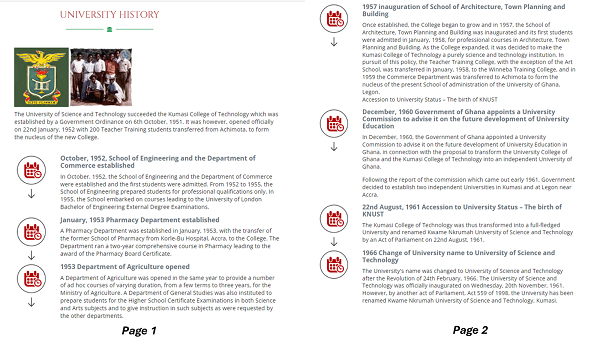
Source: KNUST
Claim 2: Ghana’s first financial bailout from the International Monetary Fund was under the supervision of Mr Nkrumah.
Verdict: False
Although it may be argued that Ghana’s economy struggled and led to the ousting of Mr Nkrumah and his successors seeking financial assistance from the IMF shortly after, it is inaccurate to claim that the former president led the country to seek a bailout loan.
Verification
Ghana has had a long history with the International Monetary Fund, having joined the Fund in September 1957.
Three months after the ousting of Mr Nkrumah, the IMF approved a loan facility for the government spearheaded by the National Liberation Council.
In the 1960s, the country’s economy experienced a decline. Among other things, there was a slow growth in domestic agricultural production and a decline in total volumes and earnings of major exports except for cocoa.
“Between 1960 and 1965, the economy of Ghana wintered, causing hyperinflationary issues, deteriorating balance of payment, and foreign reserves. The wintering caused the first military coup in Ghana and the need to seek financial assistance from the International Monetary Fund (IMF) under the new regime,” Ghanaian researcher John Abbam Nyarko wrote in an article titled “Ghana’s Journey with the IMF: A Critical Review of Foreign Aid.” The Fund’s Annual Report for 1966 confirmed it.
“After a change of government in February 1966, the Ghanaian authorities worked out a programme designed to reduce the budgetary deficit, arrest the deterioration in the balance of payments, and rehabilitate the economy. In support of this program, the Fund approved a stand-by arrangement for $36.4 million for Ghana in May 1966,” page 106 of the report reads.
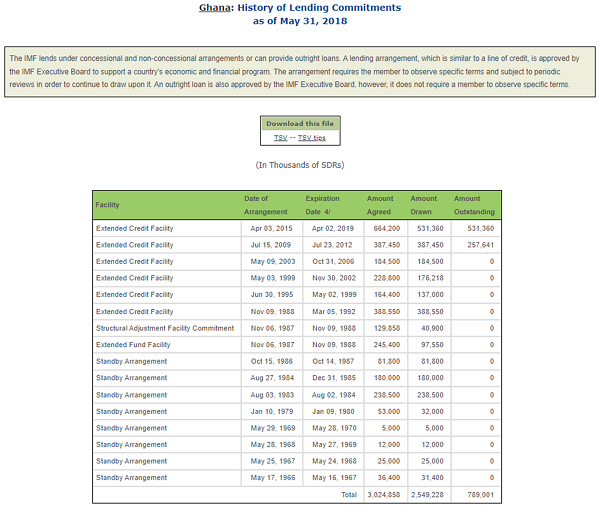
Source: International Monetary Fund
Conclusion
The claim about Mr Nkrumah leading Ghana to secure its first financial assistance from the IMF is false. However, whether he established the Kwame Nkrumah University of Science and Technology is debatable.
Click to view details



General News of Wednesday, 17 July 2024
Source: ghana.dubawa.org
Did Kwame Nkrumah establish KNUST, and secure Ghana's first IMF programme?
Opinions
